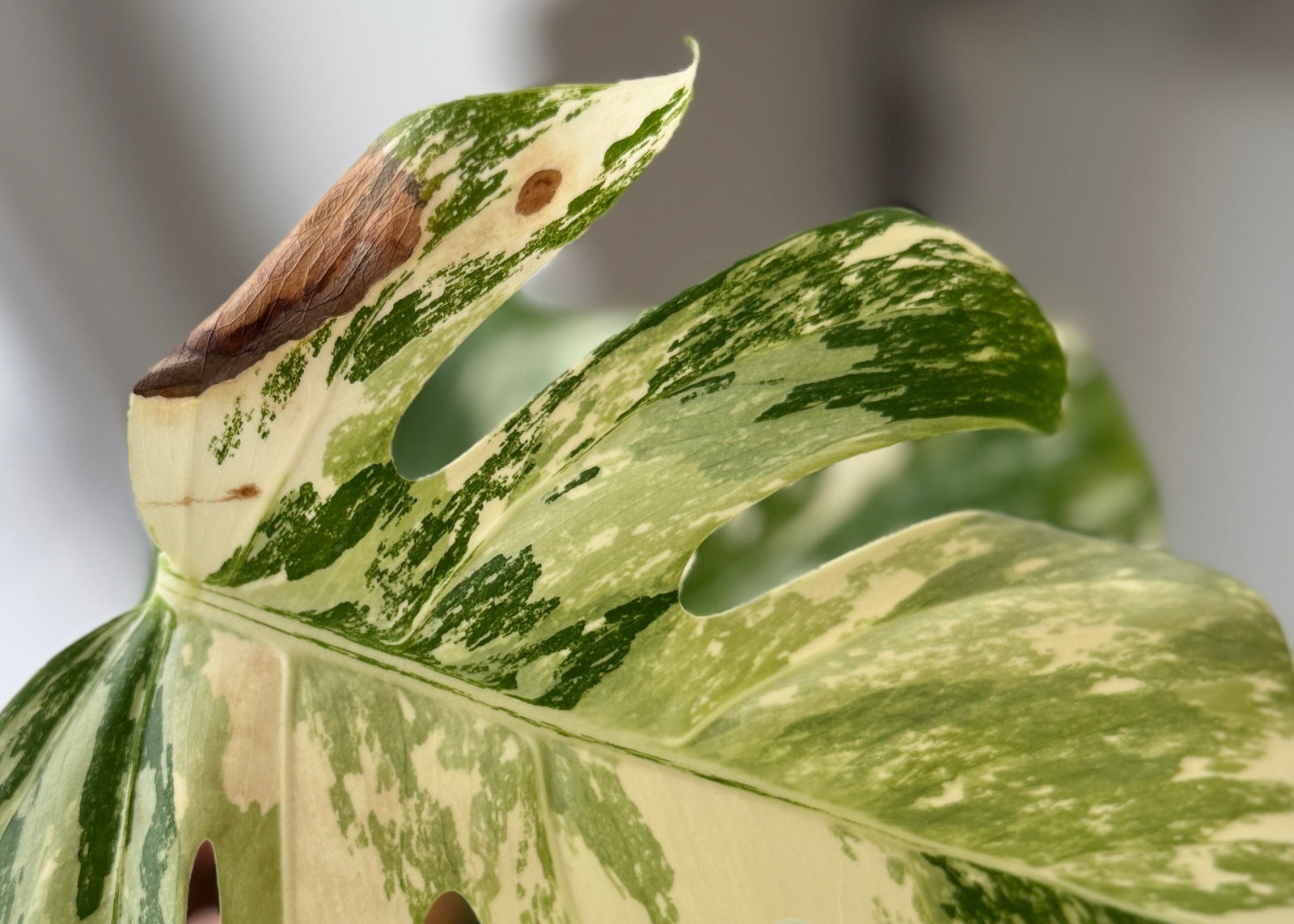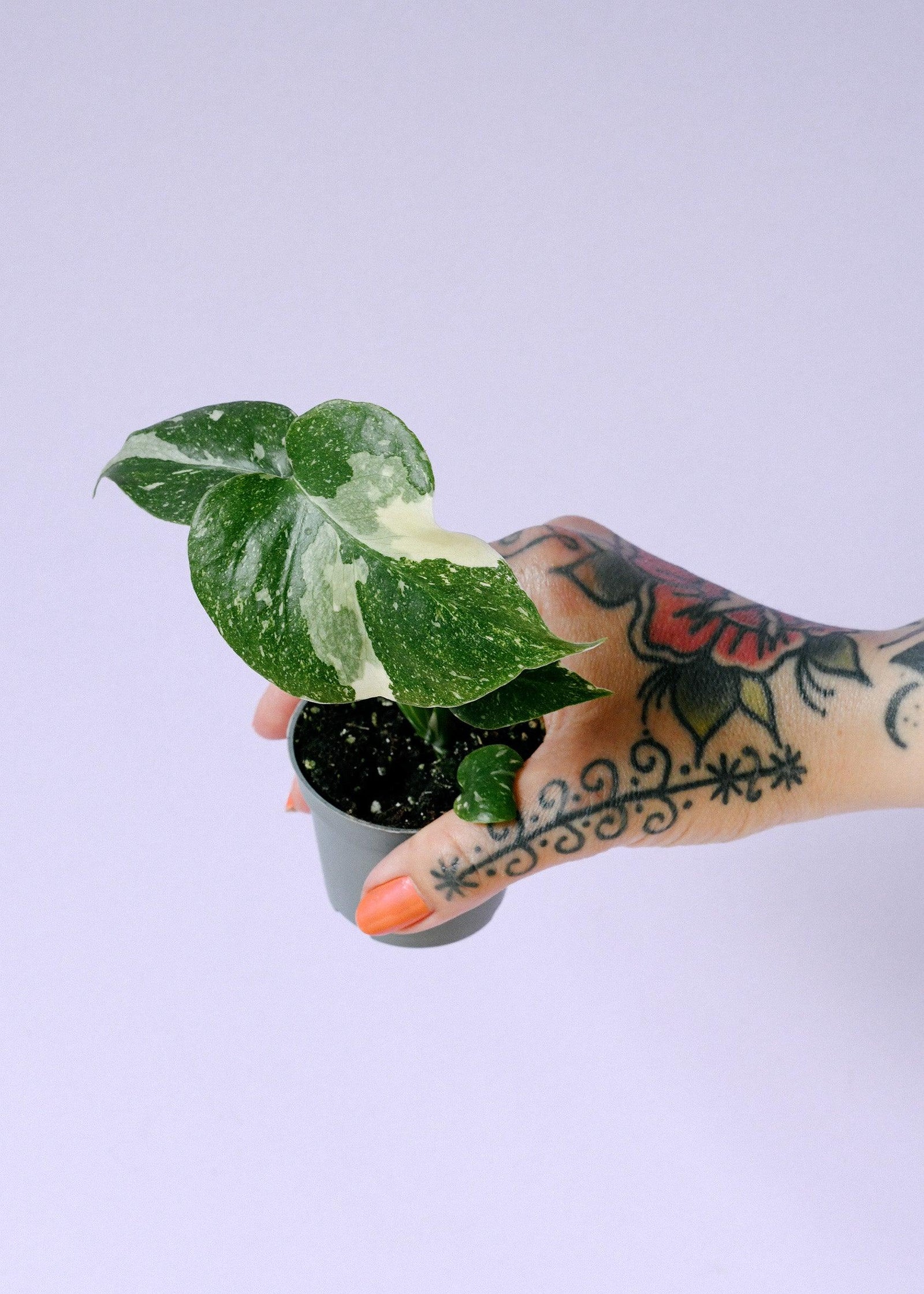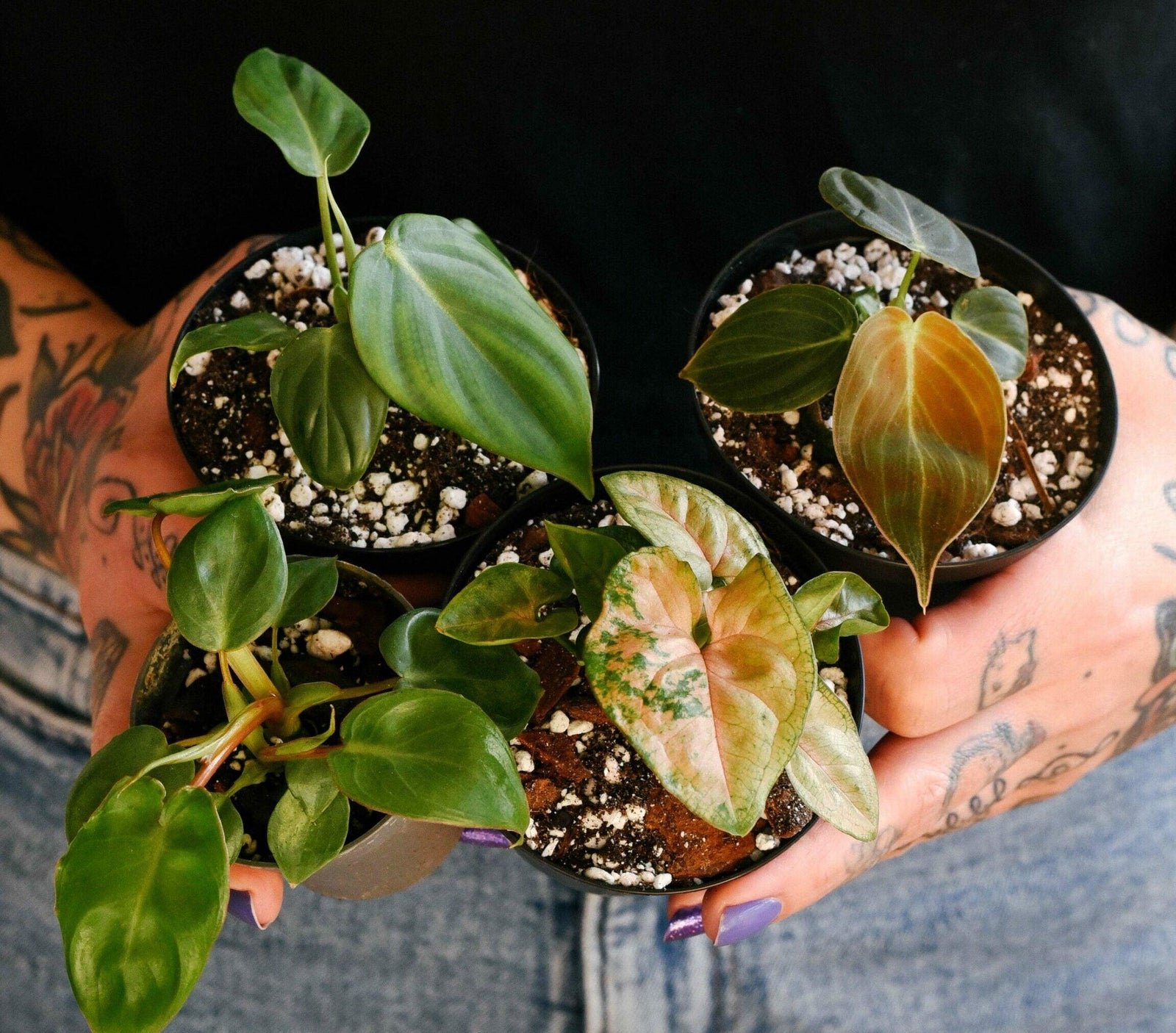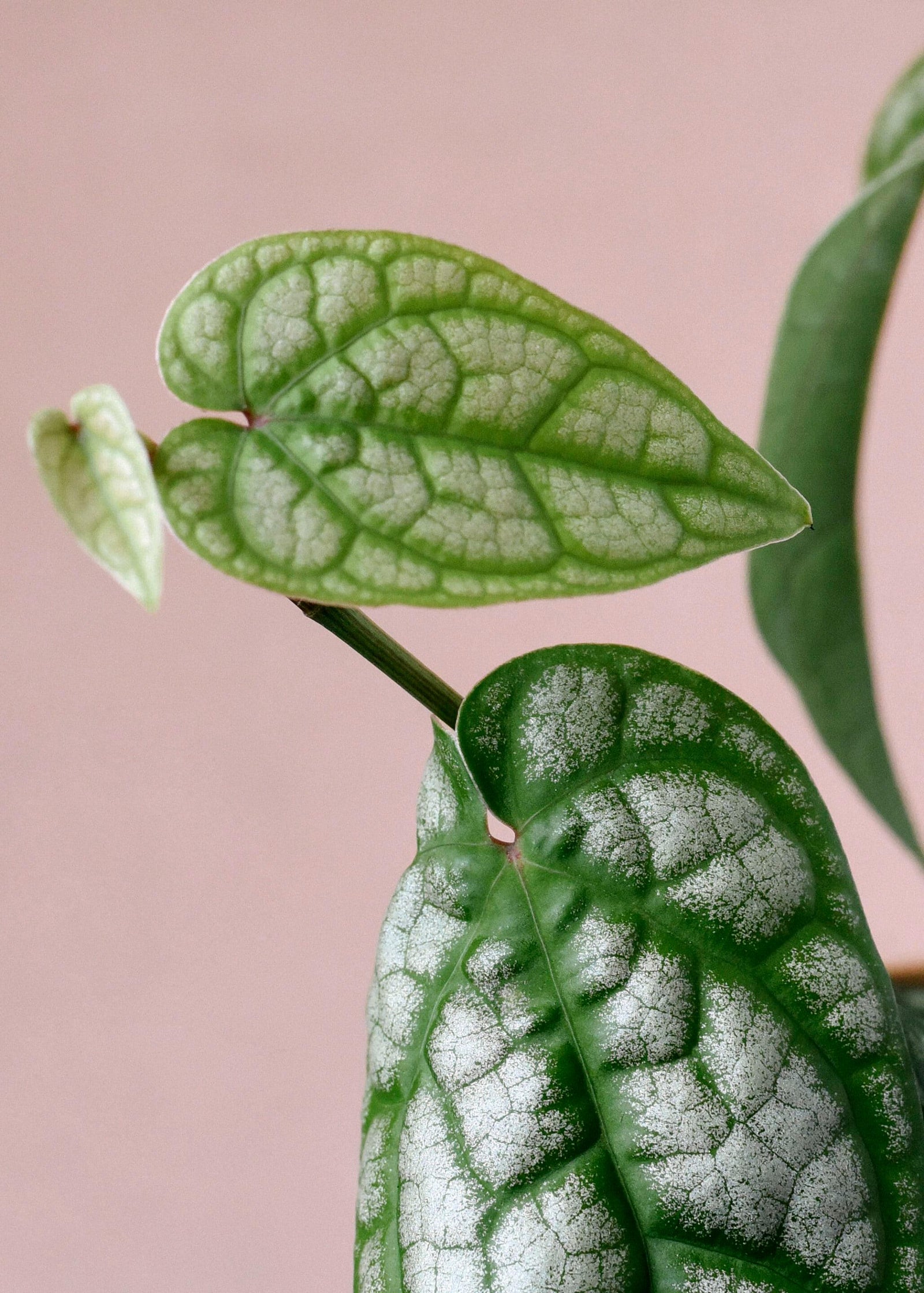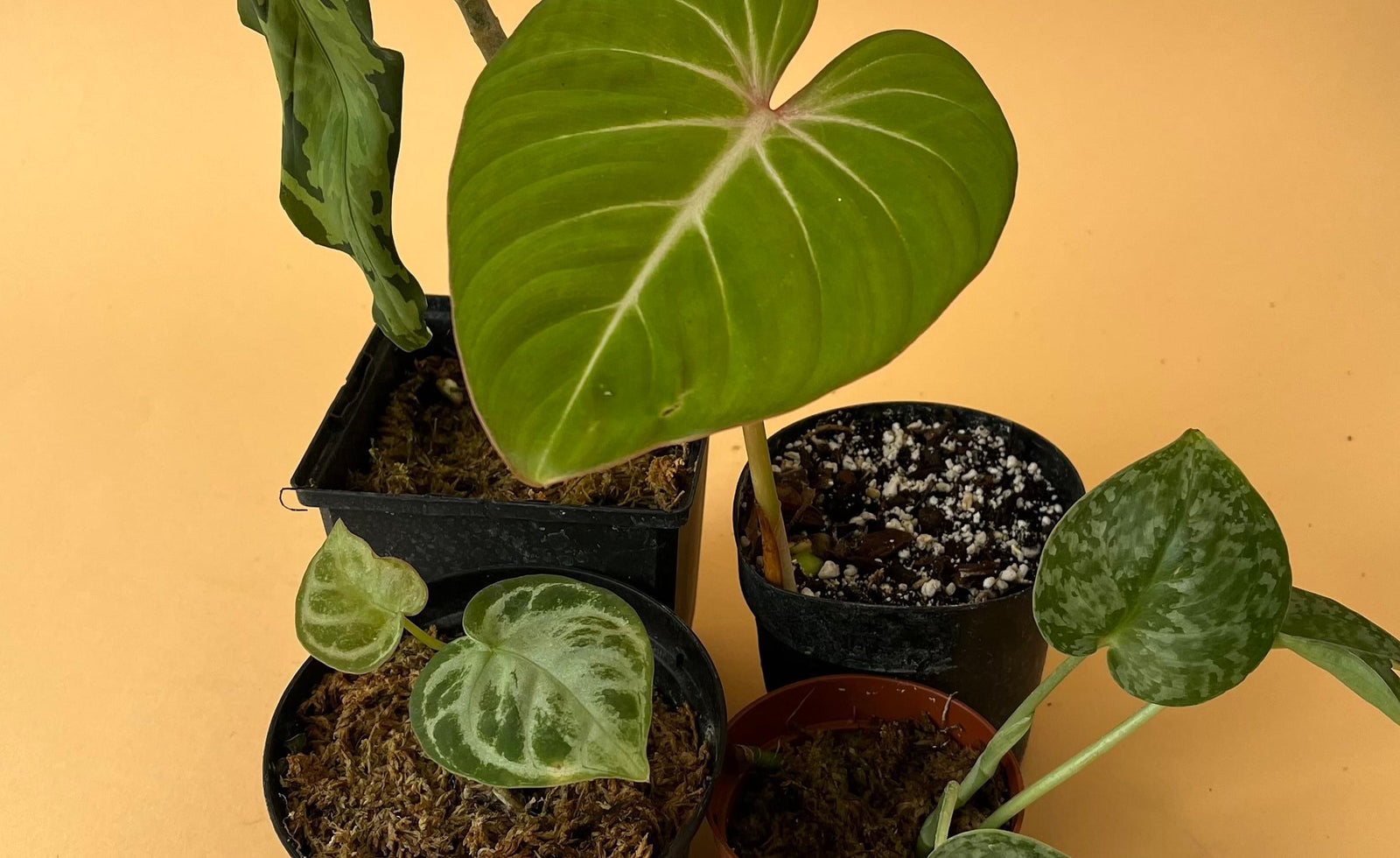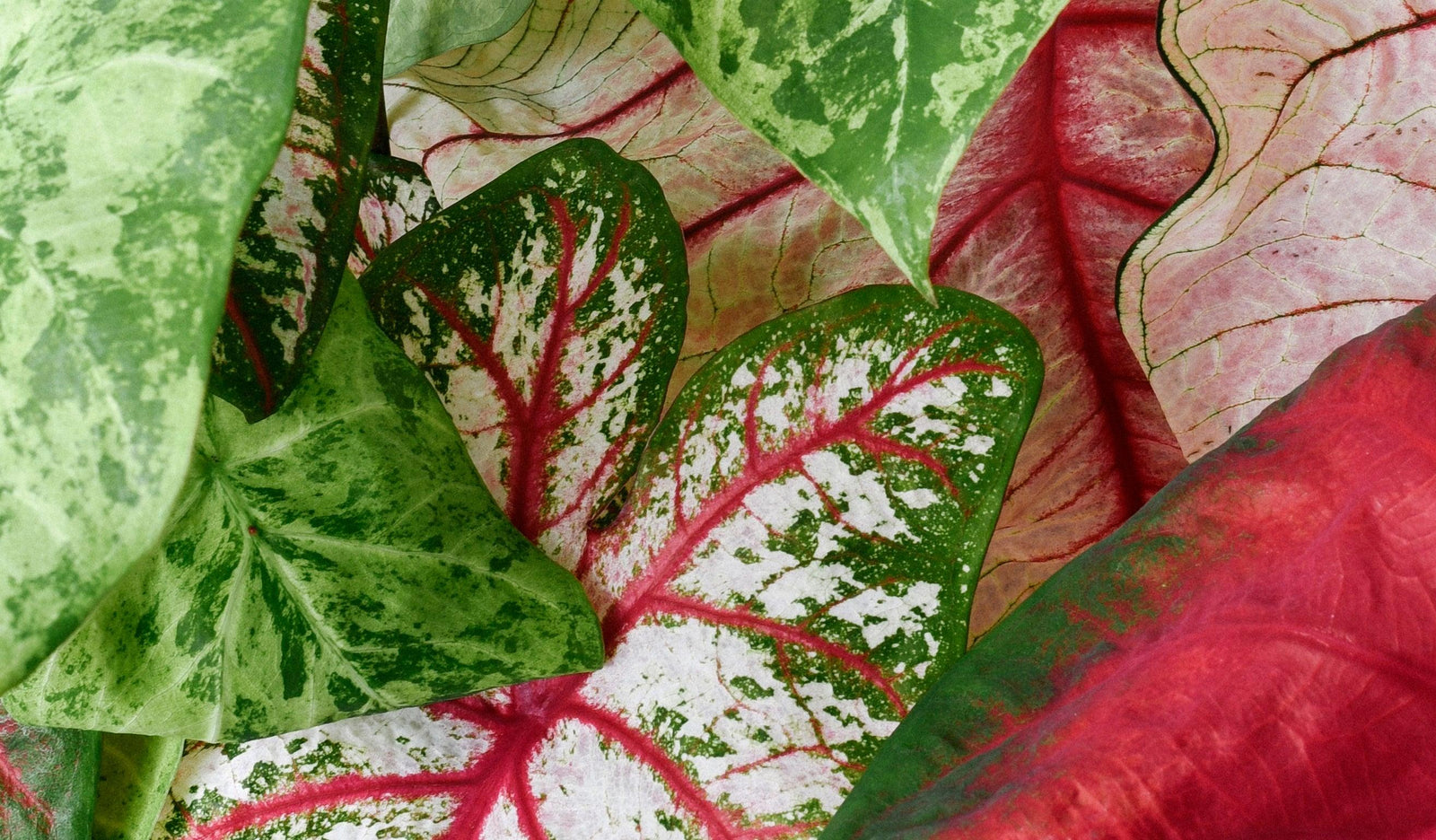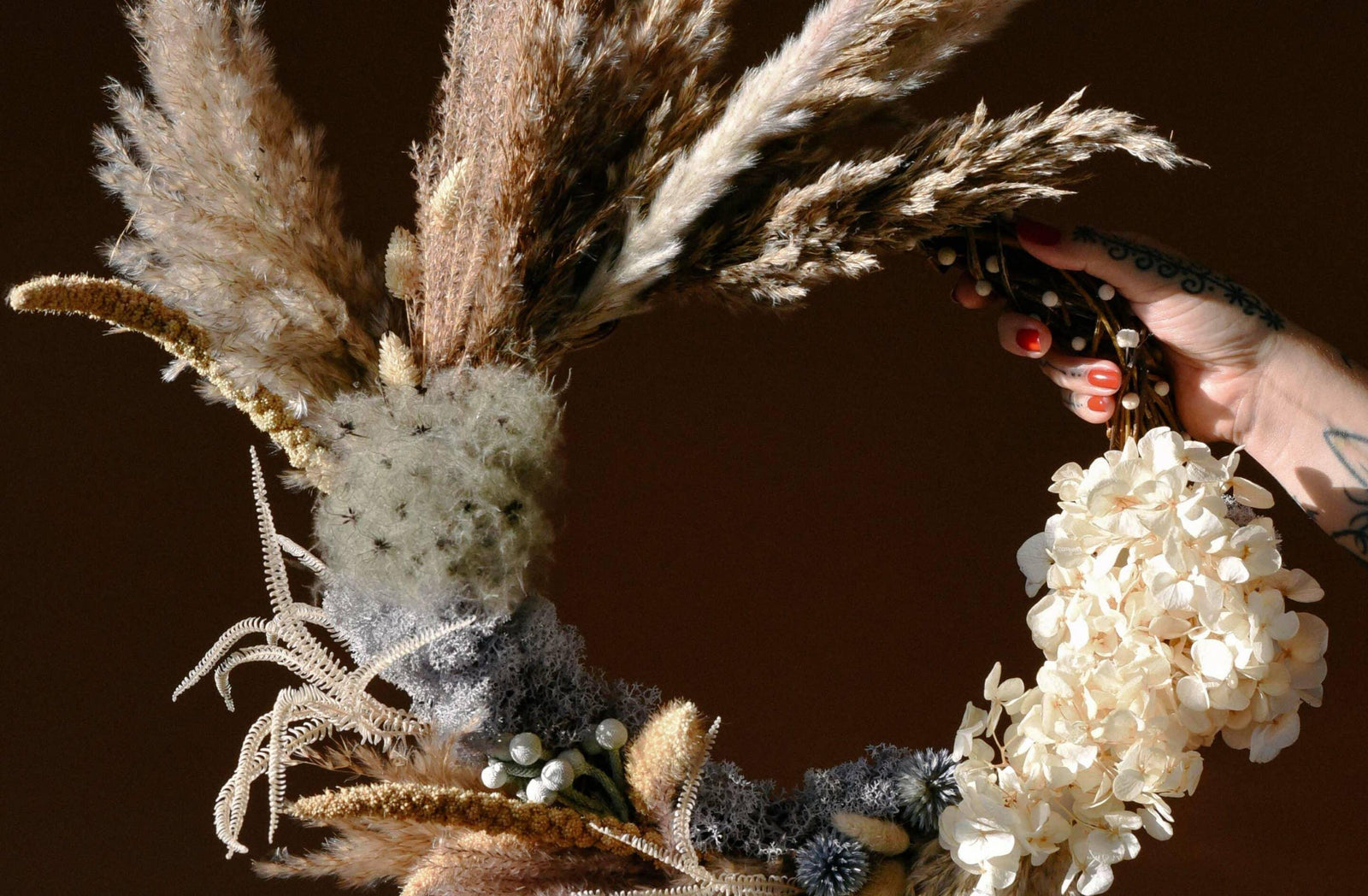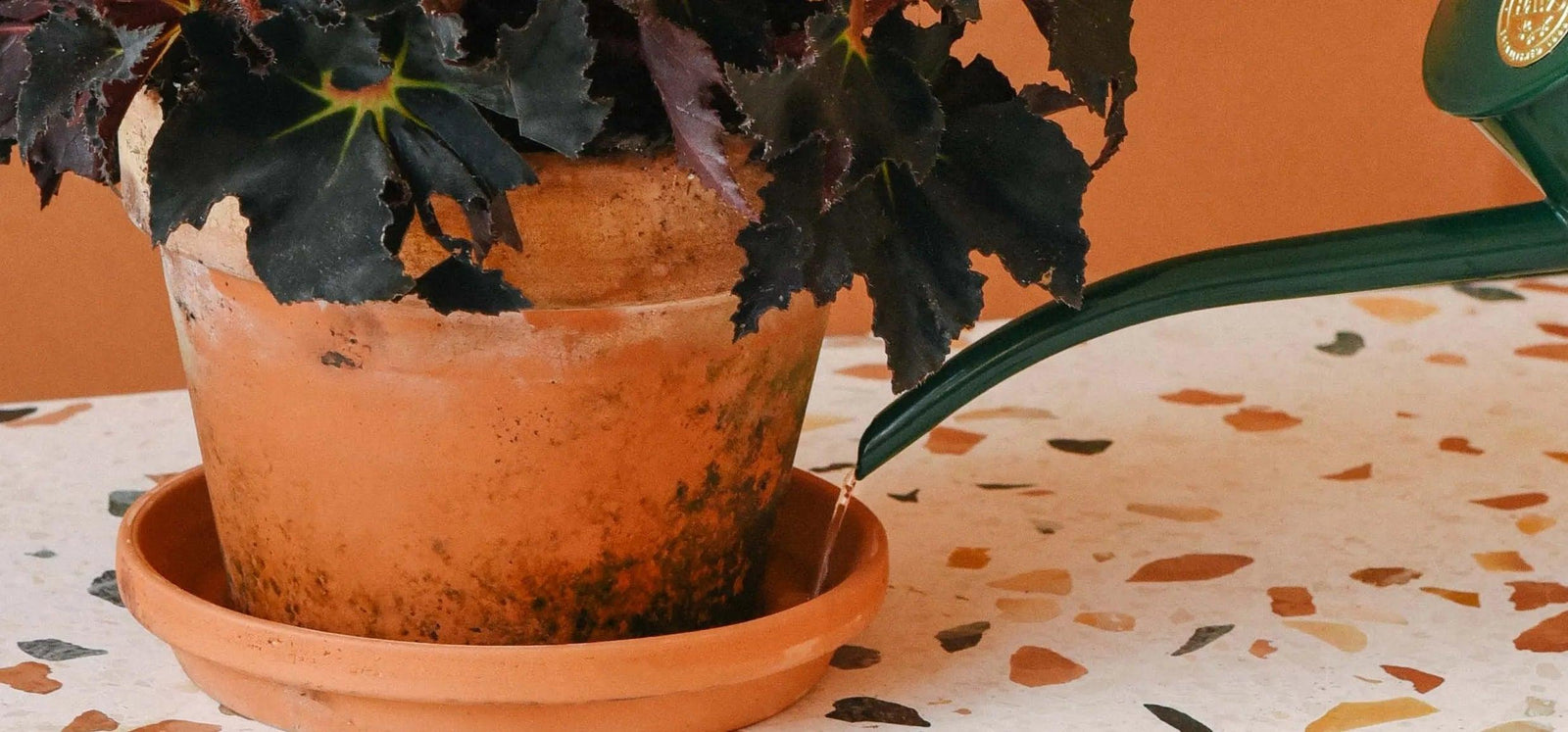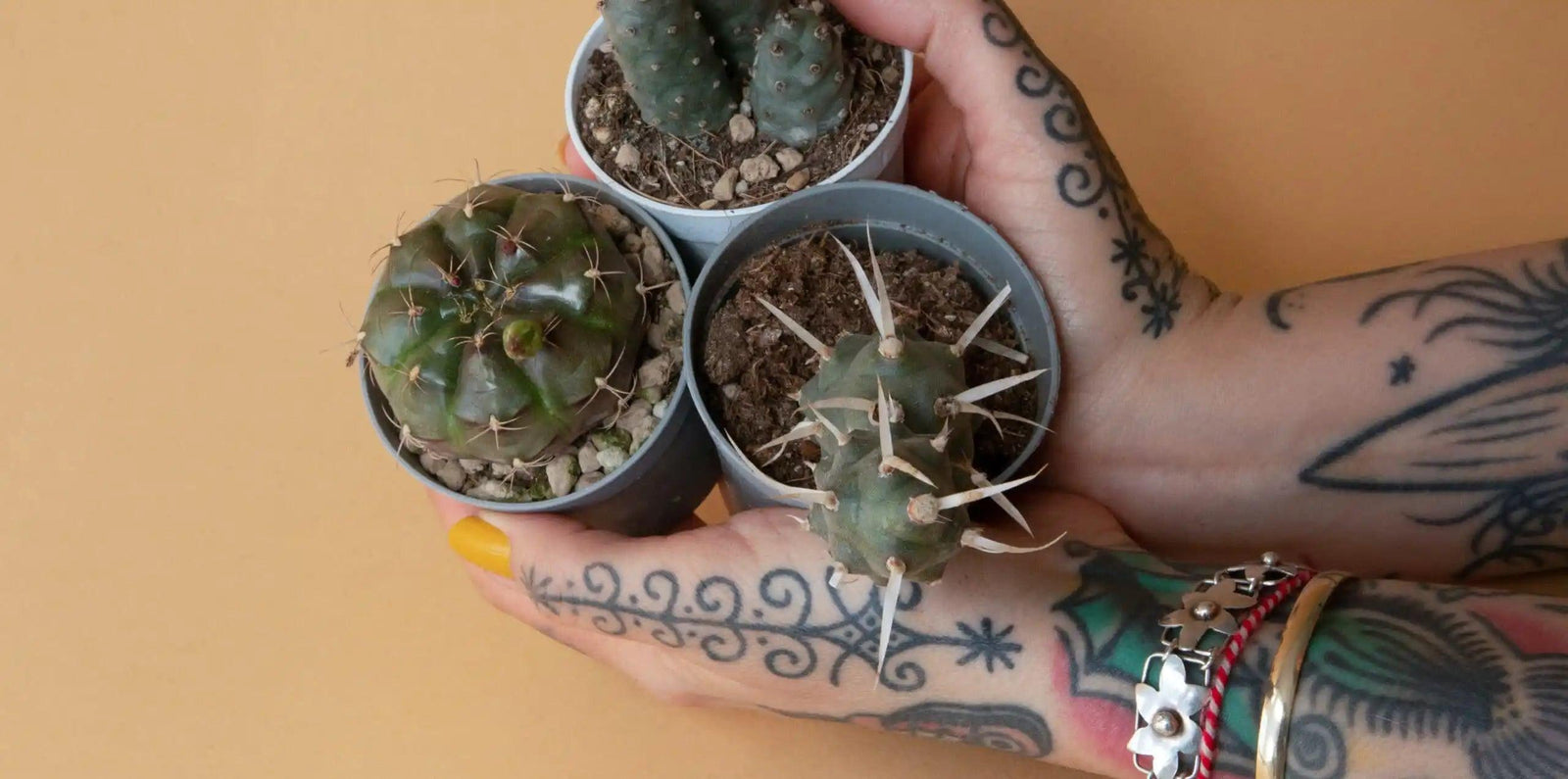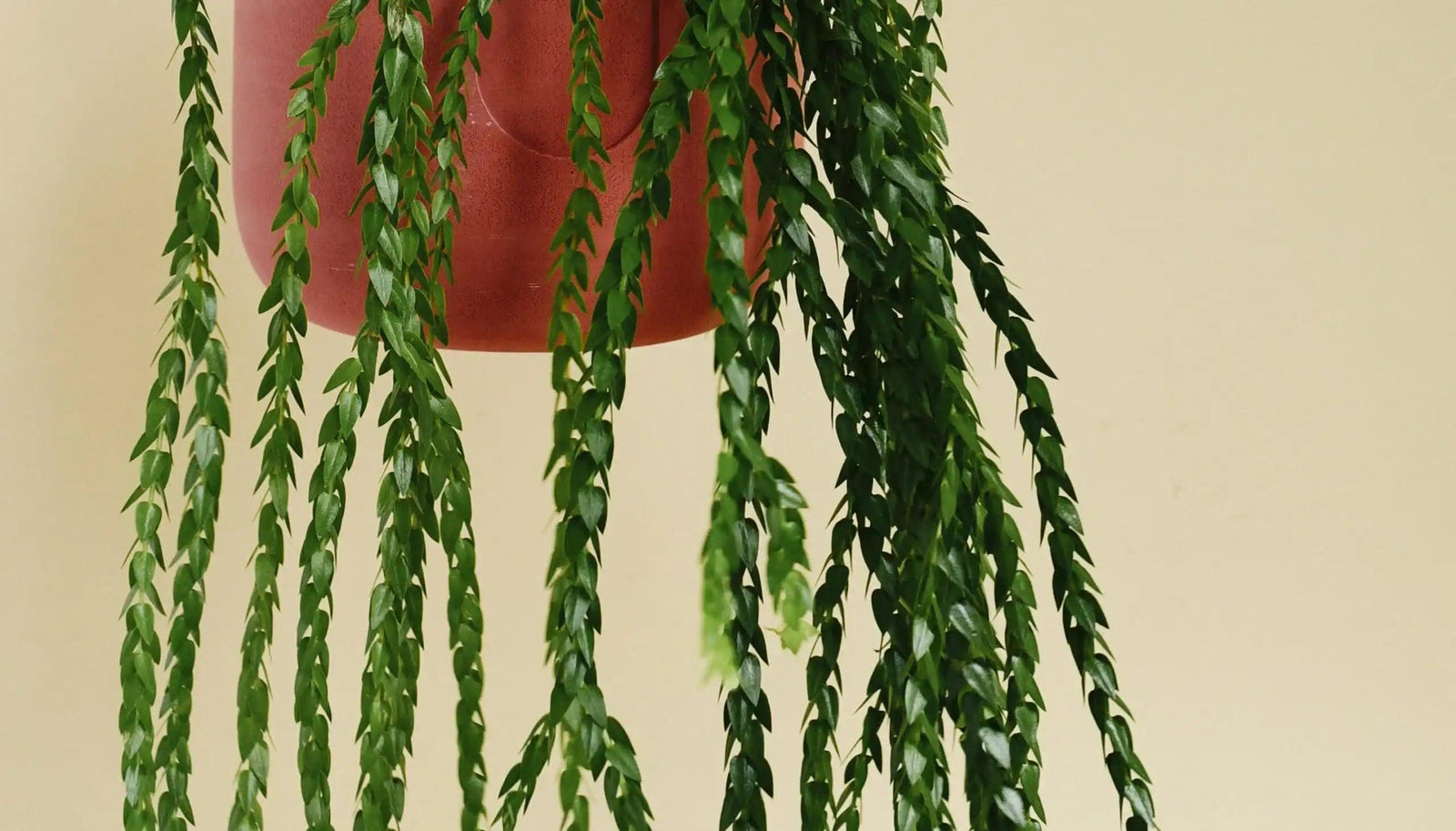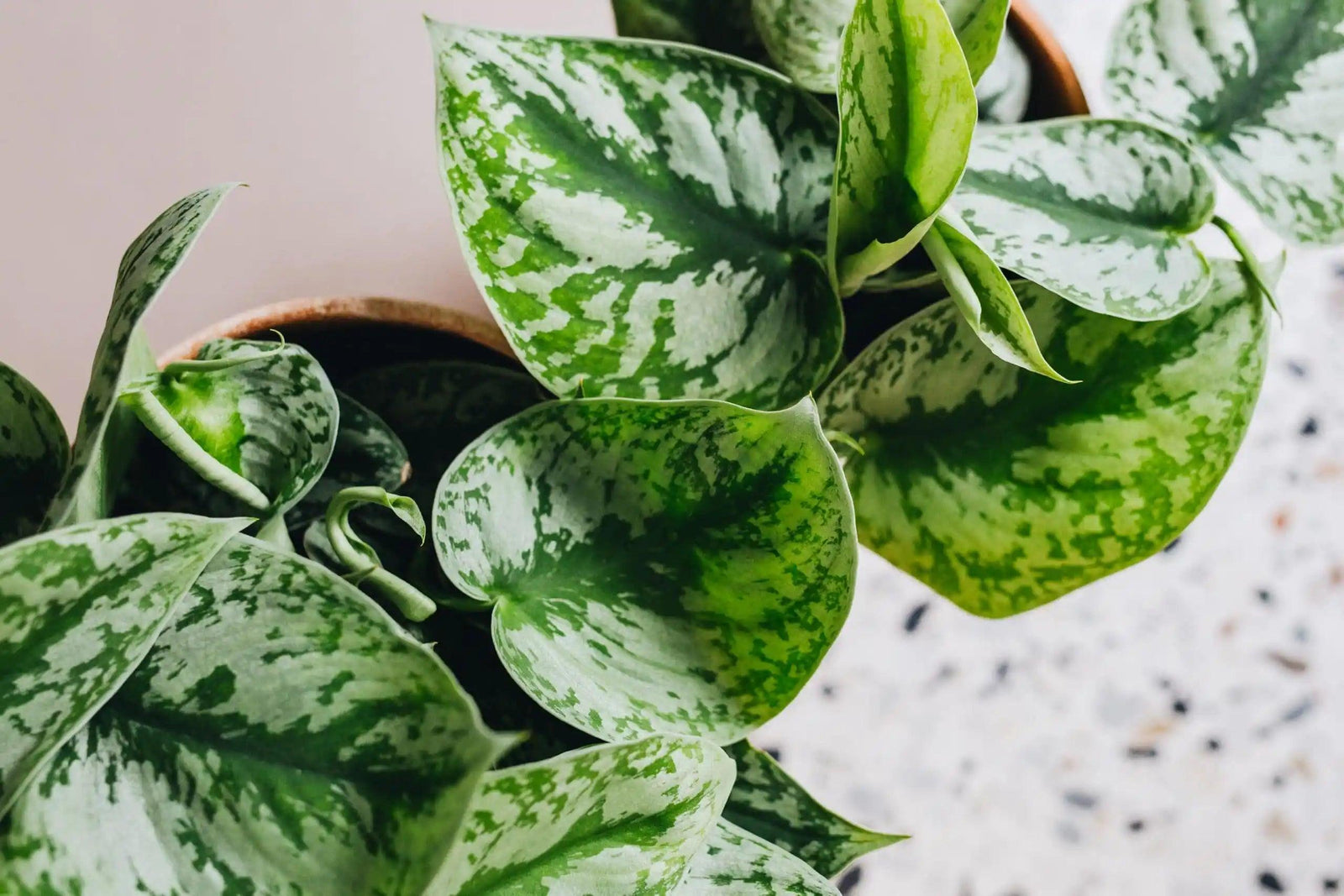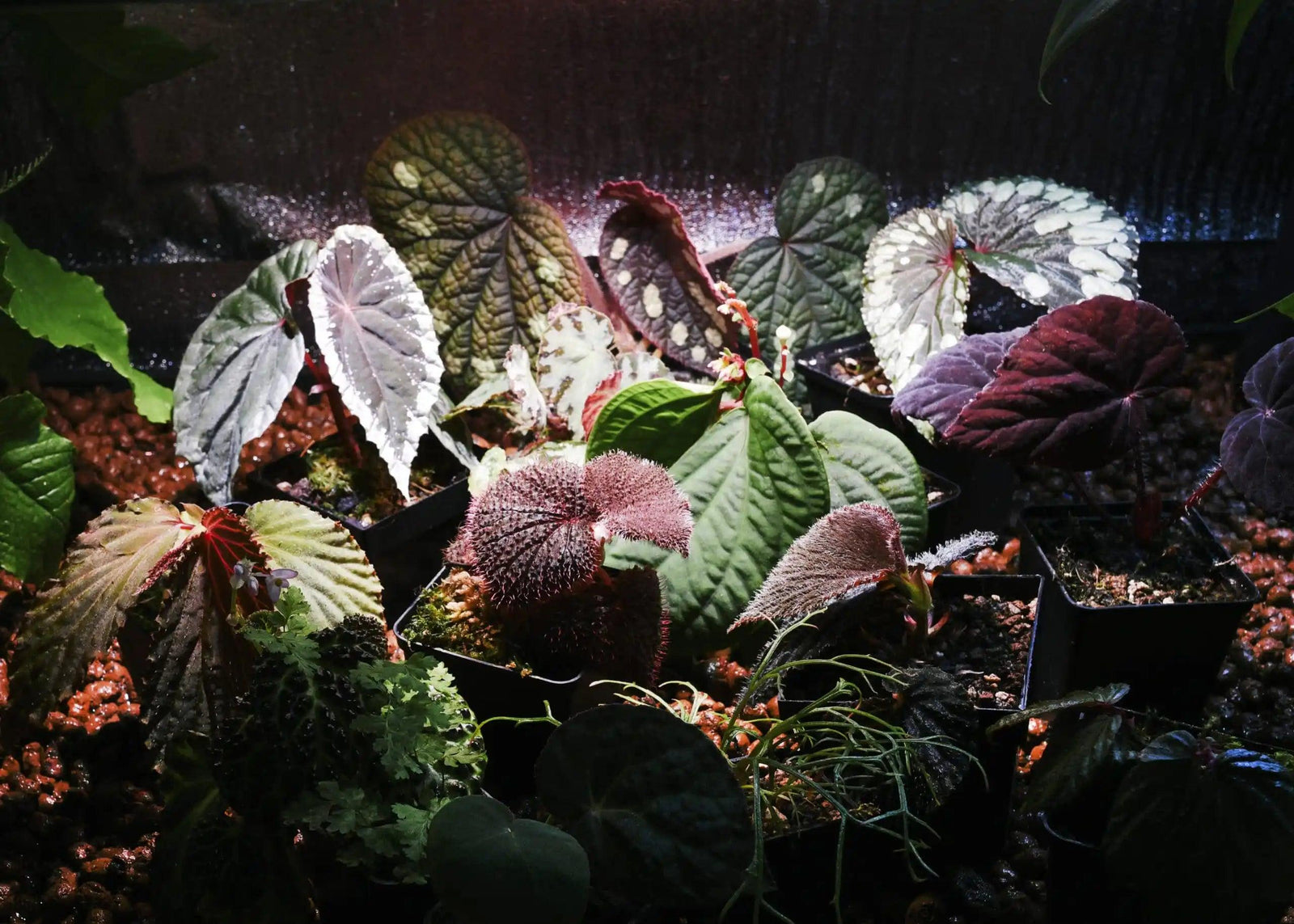Guides – by Plant Circle
Plant profile: Anthurium
In this introduction to this incredibly popular houseplant, we asked Plant Circle team member, and avid plant collector, Sarah, to give us her best Anthurium care tips, so get yourself a coffee, get comfy in your favorite chair, and prepare to have some knowledge dropped in your lap!
Anthuriums are among the most stunningly beautiful foliage plants the world has to offer, if you ask us! Who can resist their unreal veins, or their giant velvet, glossy, or corrugated leaves? We definitely can’t! While many people collect and grow them perfectly fine as houseplants, it needs to be noted that these are first and foremost jungle plants, that need some level of special care in order to thrive. But don’t worry, we got your back! You will find all the information you need to grow your own happy and healthy Anthuriums in this post.
But first, a little background information about this fascinating plant! Anthuriums are actually the biggest genus in the Aroid family, encompassing about a thousand species of plants. They are found throughout southern Mexico, Central America, and much of South America, with a few species found in the Caribbean. Aroid experts expect that there are hundreds more Anthurium species out there, that have not yet been located and described in the rain forests of many South American countries, Ecuador and Colombia in particular. The vast majority of the rarest and most beautiful forms of Anthuriums are located on the western slopes of the Andes Mountains. Each year, Aroid specialists like Dr. Tom Croat of the Missouri Botanical Garden, who’s considered one of the world’s leading experts on this Aroid genus, trek deep into the rainforest, with the assistance of students and researchers, in order to locate, photograph, collect, and describe new species. He is also the person responsible for finding many of the species that the plant community are obsessing over these days, so if you have a popular Anthurium in your collection, you probably have Dr. Croat to thank for it! The genus Anthurium is now found in South Asian countries as well, but only because humans cultivated them in the region. Ok, so now that we know a bit more about where Anthuriums come from, let’s get into how to best care for them!
Substrates. There are epiphytic, hemiepiphytic, and terrestrial Anthuriums, which tend to favour the kind of growing media that best reflect their habitat in nature. Some Anthuriums are flexible in terms of environments and can be found in both terrestrial and epiphytic conditions. One notable example for this is the popular Anthurium Crystallinum.Most anthuriums are epiphytes, native to the canopies of tropical rainforests. They use their roots to anchor themselves on trees, then gather water and nutrients from the surrounding environment, and not by parasitizing the tree.
Epiphytic Anthuriums grow on trees and attach their roots to the bark, meaning they grow without the involvement of any soil. This is why, when kept in a pot, they will love a very airy mix, containing around 50% bark, 30% perlite and 20% substrate. And go ahead and add some charcoal for its antibacterial and antifungal properties! The only reason why it’s beneficial to add some substrate to the mix, is because it is moisture-retentive, and therefore saves you the hassle of having to water your plant everyday! Examples of Epiphytic Anthuriums include Anthurium Clarinervium, Anthurium Veitchii (King Anthurium), Anthurium Plowmanii, and Anthurium Villenaorum.
Hemiepiphytic Anthuriums root in the ground, and then attach themselves to another plant, often a tree, to climb upwards. Since they start out in the ground, they fare better in mixes containing more soil compared to epiphytes.
We recommend a mix of 40% bark, 30% perlite and 30% substrate with added charcoal. These plants might require a deeper pot, or a pole to hold on to as they start climbing.
Examples of Hemiepiphytic Anthuriums include Anthurium Warocqueanum, Anthurium Marmoratum, and Anthurium Metallicum.
Terrestrial Anthuriums grow on the ground of the rainforest, and because of that they can tolerate a mix that’s a little less airy. We recommend 1/3 bark, 1/3 perlite, and 1/3 substrate.
They will also love a top layer of live moss that covers their roots and stem!
Examples of Terrestrial Anthuriums include Anthurium Magnificum, Anthurium Dressleri, Anthurium Besseae, Anthurium Papilillaminum, and Anthurium Queremalense, as well as almost all pebbled-leaf Anthuriums, such as Anthurium Luxurians, Anthurium Radicans, Anthurium Corrugatum, and Anthurium Clidemioides.
Most Anthuriums also do exceptionally well in semi-hydroponics, such as PON or Leca. Their thick roots love the airy mix, and they’re also not as threatened by the constant moisture as some plants with thinner roots might be.
In cases of root rot, we recommend putting the remaining stump into spaghnum moss that you will need to keep moist, but not wet, at all times. Anthuriums love growing new roots into spag! You can also keep your Anthuriums in this moss in general, this is however only recommended for people who check on their plants daily, as it can dry out quite rapidly, and needs constant observation.
Pro tip: Use living moss! Anthuriums really appreciate a layer of moss on top of the potting mix, and the layer should cover the top part of the stem, allowing the plant to grow its new roots into it. While spaghnum moss works fine, living moss, such as cushion moss, is more ideal since it forms a natural symbiosis with your Anthurium, giving it not only extra support, but also humidity from growing close to the leaves, as well as helping the plant retain some extra water in the soil. It also happens to be way prettier than spaghnum moss, making it look as if your Anthurium is growing on the forest floor. Adding layer of moss will also facilitate both root and leaf growth!
Light. Anthuriums live in the undergrowth of the Southern American rainforests, so they are used to rather low light situations. Especially the ones with a purplish to red underside have adapted to their deeply shaded environments. Research has shown that the coloration on the leafs undersides is used to reflect a significant amounts of light that has already travelled through the upper leaf surface, back into the leaf where it is absorbed. This means that such plants have found a genius way to absorb light more effectively by reabsorption! However, it must be said that low light situations in a rainforest can still be brighter than the dark corners of our homes and, while some Anthuriums can definitely be kept there, they will by no means grow a lot or thrive. Giving them at least medium bright light will allow them to lead a happier life in your home! Precious, velvety Anthurium leaves get sunburned fast, so make sure to keep a good distance from grow lights, and acclimate them to the light if you had them in a low light setting before.
Many collectors keep their Anthuriums in the now famous IKEA greenhouse cabinet with grow lights. In our experience, a 30 watt LED strip at the top, and another one in the middle of the cabinet, will be more than enough to make your Anthuriums grow in this particular setting in no time!
Humidity. Humidity is where the debate forums really start to heat up when it comes to Anthuriums! Many people say that you can only grow Anthuriums in high humidity, so if you cannot provide them with 70%+ humidity, you shouldn’t even start collecting them. However, we are happy to inform you, that this is not entirely correct! While it is true that, technically, Anthuriums are not houseplants and cannot be grown as such, there are some varieties that will be okay growing in 40% humidity or lower!Anthuriums with glossy leaves are generally known to be more easy going when it comes to humidity. Anthurium Browniii, Plowmanii etc. will grow and thrive in your home without any fuss! Velvety Anthuriums are usually a little more demanding, but some species more so than others. Our beloved Anthurium Clarinervium, for instance, has become so commonly obtainable exactly because it makes a great houseplant. It will be fine with a humidity of 50%, which happens to be the humidity you should strive for in your home anyway, because it’s ideal for humans too!Other velvet-leaved Anthuriums will thrive in a humidity of ideally 65-80 %. Providing them with the humidity they need will ensure that you don’t get crisped up leaves or stunted growth. Still, a lot of our beautiful velvety favourites can be acclimated to live in lower humidity conditions. It is a time and care-intensive process, since you should only lower the humidity for them bit by bit in order to make them get used to the change, but they will eventually be able to live in 50% humidity environments. We have done this successfully with Anthurium Besseae and Anthurium Papilillaminum x hybrid! Some Anthuriums, however, will wilt within hours when they are not given the right humidity. These are, unfortunately, out of the question as regular houseplants and require a terrarium our greenhouse environment. Especially the pebbled-leaf, corrugated Anthuriums belong in this category. A prime example is the Anthurium Splendidum, one of the most beautiful species out there, which will only thrive in humidity over 85% and doesn’t tolerate anything less. One notable exception to this rule perhaps is the Anthurium Luxurians x Dressleri hybrid, which does very well in normal room conditions, when properly acclimated to them.
A lot of people grow Anthuriums in greenhouses, grow tents or greenhouse cabinets to ensure high humidity.
Yet, these plants are quite prone to fungus, so it is very important to give them proper air flow and clean their environment regularly.
But we’ll get to that in the pest and diseases section!
Fertilizing. Many Anthuriums will grow like crazy once they are fertilised regularly. Slow-release fertiliser that is mixed in with the soil can work wonders for them. However, your personal go-to fertiliser, which can also be liquid, will do the trick as well! In a greenhouse environment you can fertilise them all year round, because, just like in the rainforests they originate from, no seasonal differences exist in there!
Repotting. Anthuriums love having space for their roots, so they will appreciate pots that are bigger than their root ball, and generally go up a size or two more than you would for your other houseplants. They will reward you for giving them more space by growing bigger leaves!
Pests and diseases. Anthuriums are not as prone to pests as a lot of our other houseplants. However, if stressed, they can get attacked by spider mites, thrips, and other common houseplant pests. This is why it is important to leave your Anthuriums alone as much as possible, instead of constantly repotting and pruning them, or changing their environment. This will only make your plant weaker and more attractive to pests! The most common problems with Anthuriums are bacterial and fungal diseases, including bacterial blight, root rot, stem rot, and fungal or bacterial leaf spots. Bacteria and fungus thrive in the same high humidity conditions that your Anthuriums love as well, and this is why it is necessary to ensure good air circulation in your home or greenhouse environment, as moving air makes it way harder for fungus or bacteria to settle on leaves! If you see yellow spots on your Anthurium leaves, often with a small brown spot in the middle, or large parts of your leaf turn brown and crispy with a yellow halo around them, you likely have a bacterial or fungal problem. The first emergency step is to separate the affected plant from the rest of your plants, since bacteria and fungus can spread rapidly. We highly recommend cutting off all leaves that show signs of bacteria or fungus and disposing of them right away. We know this is a very daunting process and you might be left with nothing more than a stump if all leaves are affected. So, if you would like to try alternative methods first, we recommend a fungicide containing copper, or a systemic fungicide, which can stop the breakout on your plant. It will not remove the spots, but it will prevent the fungus from spreading.In case of a bacterial infection, what works for humans also works for your plants… believe it or not, we’re talking about mouthwash here! Spray some antiseptic mouthwash directly onto the affected area of the Anthurium, and let sit for five minutes. Then gently remove the remaining liquid from the leaf using a cloth. You can also spray your Anthuriums once a week to prevent any insect infestations, but be sure to only use the unflavored, or gold, version of the mouthwash, as the flavored versions have extra additives that could be harmful to your plants health.
Propagation. Anthuriums can be propagated by stem cuttings and pollination, but it will take a whole other blog post to describe these processes, so stay tuned for a future post about that!
We hope this post has inspired you to take on the exciting task of Anthurium plant parenthood, and whether you go full on with a greenhouse or a grow tent, or you just want to try putting one in your windowsill next to your more common house plants, you now have all the knowledge required to make your Anthurium of choice thrive!








